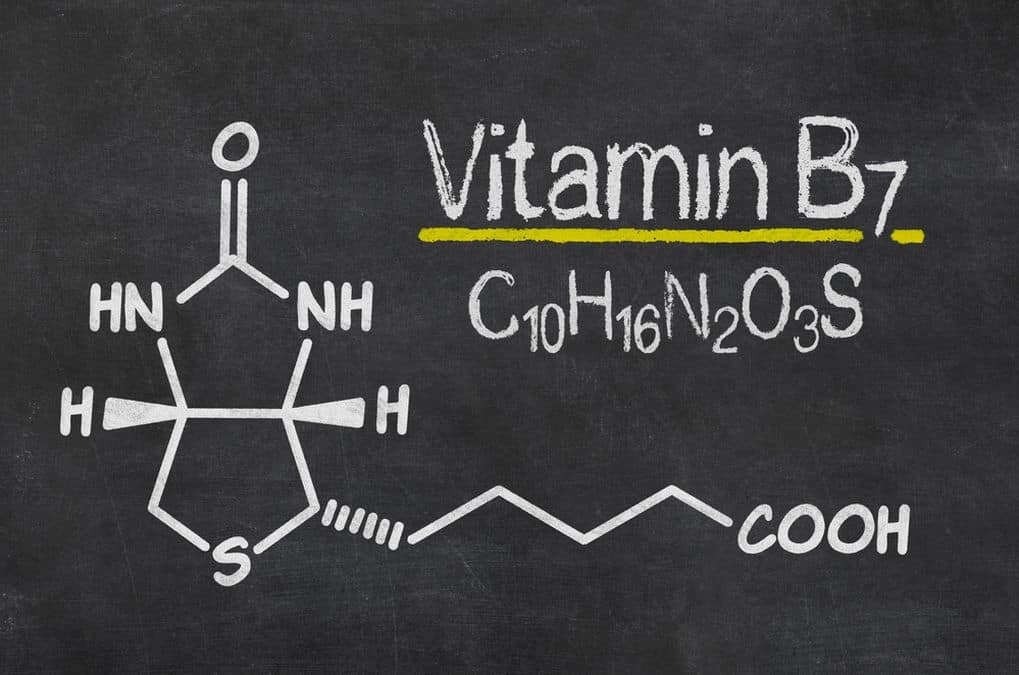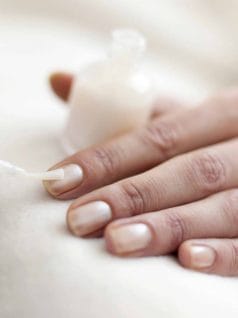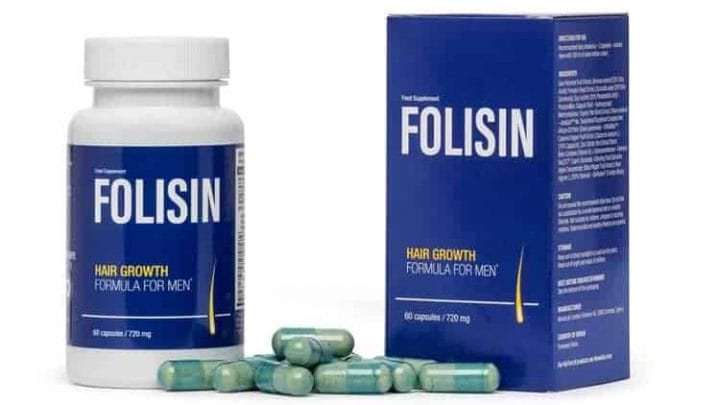
Biotin – properties, uses, sources. Biotin for hair, skin and nails
We hear a lot about biotin in terms of maintaining good condition of hair, skin and nails. Its other name is vitamin B7 or vitamin H. However, not everyone knows that biotin has a much broader meaning for our body. Among other things, it regulates the level of glucose in the blood, which is why it is recommended for diabetics. Biotin also participates in the synthesis of fatty acids and metabolism of leucine, and its impact on our beauty is irreplaceable. What properties does biotin have, where can we find it and how does it affect our health?
Contents
Biotin (vitamin B7) – what is it?
Biotin is an organic compound organic compound, found in both animal and plant tissues. plant tissues. It is considered a water-soluble vitamin. It is produced by intestinal bacterial flora, therefore its deficiency are rare, however if they do occur, they carry with them serious consequences for our body.
Here are some interesting facts that are worth know about vitamin B7:
- it is a water-soluble vitamin;
- is stored in the liver;
- helps in the process of assimilating vitamin C;
- takes part in fat synthesis and fat and protein metabolism;
- together with vitamin K, participates in the synthesis of prothrombin, a protein responsible for blood clotting;
- participates in the metabolism of sugars and amino acids;
- prevents greying of hair and baldness;
- In its dry form, it remains stable, however, in an acidic environment and at high temperatures, it loses its properties.
How does biotin affect the human body?
Biotin has many properties, which can improve health and beauty. What properties of biotin?
Biotin for nails

Biotin supports the nail plate, increasing its thickness by up to 25%. It also makes nails do not split and are more resistant to damage.
Biotin for skin
Adequate amount of biotin in our organism is very important. organism is very important. Studies show that in its deficiency may lead to skin changes, such as:
- seborrhoeic dermatitis;
- psoriasis;
- rashes;
- acne.
If you notice such changes in yourself, they may indicate biotin deficiency.
Read also: Discover the secret of youth with Collagen Select
Biotin for hair
Vitamin B7 is also very important for hair health. It affects the strength of the hair structure and inhibits hair loss.
The effect of biotin on hair, skin and nails is well known. It is worth knowing that vitamin H also has other health properties.
Check: Locerin – a prescription for hair loss in women
Biotin prevents birth defects
Pregnant women and nursing mothers have an increased need for biotin, because during pregnancy During pregnancy this component is broken down more quickly, Therefore, biotin deficiency is easier to occur. Special attention should be paid to this attention, since biotin deficiency may contribute to the formation birth defects in the child.
It participates in the metabolism of glucose and prevents neuropathy
Biotin is recommended for people suffering from type II diabetes, because in combination with chromium effectively lowers the level of glucose in blood. Studies show that Vitamin H reduces the symptoms of diabetic neuropathy.
Biotin takes part in metabolism
Vitamin B7 takes part in the decomposition of amino acids, synthesis of fatty acids, as well as in the process glucogenesis, providing the body with additional energy. Vitamin H also enhances the absorption of vitamin C, which in turn enhances absorption of other nutrients.
In addition, biotin supports biotin also supports the functioning of the thyroid gland and promotes the blood clotting process.
Currently, there are also studies on biotin in the treatment of patients with multiple sclerosis. Tests show that in patients whose therapy included vitamin H, the state of disability decreased. However, these are still unofficial data and we are waiting for the results of further studies.
Effects and symptoms of biotin deficiency
Vitamin B7 deficiency occurs rarely and is most common in :
- pregnant women;
- people after long-term antibiotic treatment antibiotic treatment;
- people with a very poor diet;
- people with damaged intestinal mucosa intestine, so that the natural production of biotin is disrupted;
- patients with Leiner’s disease;
- people with alcoholism (malabsorption syndrome);
- abusers of steroid hormones. steroid hormones.
Worth knowing:
The demand for biotin increases in persons with hyperglycaemia and insulin resistance, as well as patients on long-term parenteral nutrition.
Symptoms of biotin deficiency include:
- constant lethargy and apathy;
- hair loss;
- anxiety, stress, restlessness, irritability, even depression;
- muscle aches, back pains;
- numbness in the limbs;
- skin deterioration: psoriasis, atopy, pale skin;
- conjunctivitis;
- split nails;
- sleep problems;
- increased blood cholesterol levels;
- lack of appetite;
- diarrhea.
Is it possible to overdose Is it possible to overdose biotin?
Biotin is very difficult to overdose. It is a water-soluble vitamin, so it does not need to be taken with meals.
Occasional cases of biotin overdose manifest themselves:
- vomiting;
- diarrhea;
- abdominal pain;
- nausea;
- decreased sense of well-being.
Where to get biotin from? Sources
Biotin is not only produced naturally by the human organism, considerable amounts can also be found in food. also in food. The best sources of biotin are:
- liver approx (100-200 µg/100 g);
- Other meat: pork, beef, poultry approx. (5-10 µg/100 g);
- Soya beans approx. (65 µg/100 g);
- Nuts approx. (30 µg/100 g).
In addition, biotin can also be found in:
- boiled egg yolks;
- Yeast;
- molasses;
- Fish: sardines and salmon;
- spinach;
- carrots;
- tomatoes;
- almonds;
- brown rice;
- Whole-wheat flour;
- fruits (bananas, melons, watermelon, grapefruits, peaches);
- cheese;
- bran.
It is worth knowing that thermal processing of food and UV radiation influence the partial breakdown of biotin the breakdown of biotin, so its amount may decrease. Biotin is also destroyed in the process of food preservation and smoking of products. This means that most vitamin B7 can be found in unprocessed food.
Biotin – dosage
According to standards established by the Institute Food and Nutrition Institute, the daily norms for biotin intake are:
- 5-6 µg in infants;
- 8 µg in children aged 1-3;
- 12 µg – children aged 4-6;
- 20 µg – children aged 7-9;
- 25 µg – boys and girls 10-18 years of age;
- 30 µg – adults;
- 30 µg – pregnant women;
- 35 µg – nursing mothers.
These are not very large amounts, therefore biotin deficiencies are rare.
Biotin supplements – is it worth use them?
Biotin has many very important functions in the human body, so its proper amount is important for proper functioning. Vitamin B7 has an impact on thyroid health, it is also believed that it affects the healthy appearance of nails, skin and hair. Biotin deficiency is rare, so its supplementation, although common, is not really necessary in many cases.

Studies show that supplementation with vitamin H strengthens the nail plate and is effective for nail plate deformities and trachyonychia. The use of vitamin B7 can also help to improve the condition of hair in people who suffer from hair health and growth disorders. However, tests have shown that biotin only works when deficiencies are found. There is no specific data regarding the effects of this vitamin on healthy hair and nails.



